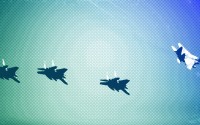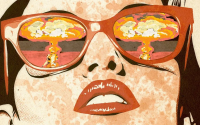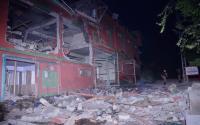23 June 2009Independent
You don't overthrow Islamic revolutions with car headlights. And definitely not with candles. Peaceful protest might have served Gandhi well, but the Supreme Leader's Iran is not going to worry about a few thousand demonstrators on the streets, even if they do cry "Allahu Akbar" from their rooftops every night.
This chorus to God emanated from the rooftops of Kandahar every night after the Soviet invasion of Afghanistan in 1979 – I heard it myself in Kandahar and I heard it last week over the rooftops of Tehran – but it no more stopped the Russians in their tracks than it is going to stop the Basiji or Revolutionary Guards. Symbols are not enough.
Yesterday, the Revolutionary Guards – as unelected as they are unrepresentative of today's massed youth of Iran – uttered their disgraceful threat to deal with "rioters" in "a revolutionary way".
Everyone in Iran, even those too young to remember the 1988 slaughter of the regime's opponents – when tens of thousands were hanged like thrushes on mass gallows – knows what this means.
Unleashing a rabble of armed government forces on to the streets and claiming that all whom they shoot are "terrorists" is an almost copy-cat perfect version of the Israeli army's public reaction to the Palestinian intifada. If stone-throwing demonstrators are shot dead, then it is their own fault, they are breaking the law and they are working for foreign powers.
When this happens in the Israeli-occupied territories, the Israelis claim that the foreign powers of Iran and Syria are behind the violence. When this happens on the streets of Iranian cities, the Iranian regime claims that the foreign powers of the United States, Israel and Britain are behind the violence.
And it is indeed an intifada that has broken out in Iran, however hopeless its aims. Millions of Iranians simply no longer accept the rule of law because they believe that the law has been corrupted by a fraudulent election. The dangerous decision by Supreme Leader Ali Khamenei to throw his entire prestige behind Mahmoud Ahmadinejad has erased any chance that he could emerge above the battle as a neutral arbiter.
Relatives of Mirhossein Mousavi's powerful ally Ali Akbar Rafsanjani are arrested then released; Mousavi is threatened with arrest by the Speaker of parliament; yet one of the most socially popular clerics and an ally of Mousavi, Mohamed Khatami, remains untouched.
Mousavi may have been a prime minister, but Khatami was a president. To touch Khatami would take away the future protection of Ahmadinejad. And the latter's powerful political friend Ayatollah Yazdi, who would like to be the next Supreme Leader, is a threat to Khamenei. And while every bloodied body on the streets of Iran's cities will now be declared a "terrorist'" by Ahmadinejad's friends, it will be honoured by his enemies as a martyr.
Mousavi, to win, needs to organise his protest in a more coherent way, not make it up on the hoof. But does Khamenei have a longer-term plan than mere survival?






